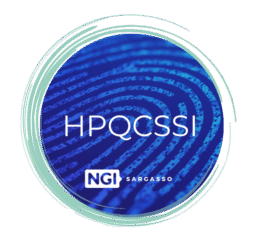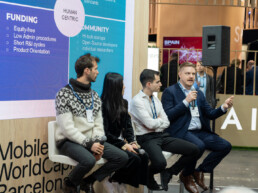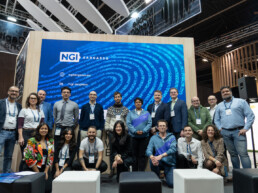
Hybrid Post-Quantum Cryptography Self-Sovereign Identity Stack


Coach Name
Dr. Juan Juan
EU Organization
VTT Research Center of Finland (VTT)
Members
- Dr. Erik Hieta-aho
- Valtteri Lipiäinen
US Organization
Ohio University (OU)
Members
- Dr. Harsha Chenji
- Dr. Animesh Yadav
Project Overview
The HPQCSSI project focuses on the development of a hybrid cryptographic system to secure self-sovereign identities (SSI) against future quantum computing threats. The project combines classical cryptographic algorithms with post-quantum cryptography (PQC) to enhance the security of digital credentials.
By integrating the SSI stack with quantum-resistant algorithms, HPQCSSI aims to bridge digital identity solutions between the EU and US, ensuring long-term security and interoperability.
Methods and approaches
Hybrid Cryptography
Implementing a hybrid cryptographic approach, combining classical ECDSA and the post-quantum ML-DSA algorithm for secure identity management.
Interoperability of Verifiable Credentials
Ensuring compatibility between the EU and US digital identity systems, allowing seamless verification and credential sharing across borders.
Quantum-Resistant SSI Stack
Development of a robust SSI stack that is resilient to quantum computing threats while maintaining compatibility with existing identity frameworks.
Key Achievements
Successful Hybrid Cryptographic Implementation
Completed the integration of both classical ECDSA and PQC ML-DSA algorithms into the SSI stack, making it one of the first hybrid implementations in the SSI ecosystem.
Cross-Border Credential Interoperability
Enabled the verification of US and EU verifiable credentials, ensuring global adaptability of the SSI stack.
Future Customer Workshops
Held workshops with students from Ohio University (USA) and Finland, gathering valuable feedback on the usability and security of the hybrid solution.
Dissemination at Key Conferences
Presented the project at multiple international conferences, including the Open Recognition Conference (Paris, 2024) and Quantum World Congress (USA).
Impact & Results
Quantum-Resilient Identity Security
The implementation of hybrid cryptography provides a secure and forward-thinking solution to protect digital identities against the advent of quantum computers.
Global Interoperability
HPQCSSI facilitates cross-border credential verification, aligning EU and US digital identity frameworks for a cohesive global system.
Increased Awareness and Adoption
Through workshops and conference presentations, the project has raised awareness in both academic and industry circles about the importance of post-quantum cryptography for SSI.
Scientific Leadership
HPQCSSI has contributed to the scientific community by pioneering a hybrid cryptographic approach to SSI, positioning it as a leader in the post-quantum cryptography and SSI space.
Publications and Open-Source Contributions
- Open Recognition Conference, Paris: Presentation on HPQCSSI’s role in securing SSI against quantum computing threats, with proceedings to be published in early 2025.
- PKI Consortium PQC Conference, Austin, TX (January 2025): Presentation on the results from HPQCSSI and its implications for PQC in SSI.
- ETSI Quantum Safe Cryptography Conference, Madrid (June 2025): Planned paper and presentation focusing on hybrid digital signatures and their future applications.
- GitHub – walt.id: Contributed to the open-source development of the walt.id SSI stack, including integration of hybrid cryptographic algorithms. GitHub Link

Future directions
Crypto-Agility and Further Development
The team plans to enhance the cryptographic library to support easy adaptability to emerging cryptographic standards, ensuring long-term resilience of the SSI stack.
IoT and Machine-to-Machine (M2M) Integration
Developing solutions to extend SSI verification beyond individual identities, enabling machine-to-machine authentication in various use cases.
Collaboration with EU Identity Wallets
Ongoing discussions with EU identity wallet teams, particularly in Finland, to integrate PQC and support the upcoming eIDAS regulations.
Funding for Further Research
Seeking additional funding and collaboration opportunities to expand the project’s scope, particularly in the development of quantum-secure identity solutions.



